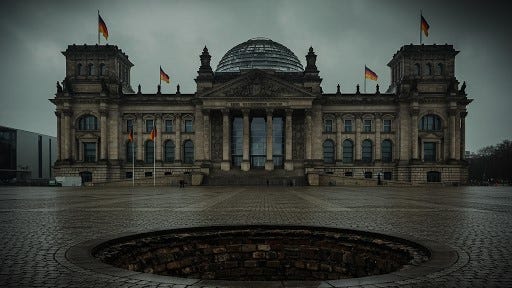A Bad End Followed by a Worse Start
Germany’s mainstream parties are stuck in political decline
It seems long ago already, but politically speaking, it was really only yesterday that the last, deeply unpopular German government collapsed on 6 November of last year. Based on a fractious coalition and led by hapless Olaf Scholz, it was a flop from almost the beginning to the bitter end. But what finally imploded Scholz’s cabinet was its finance minister’s refusal to hollow out Germany’s – back then – severe restrictions on public debt, specifically to throw even more money at Ukraine.
Exactly half a year after this fiasco, the next, current German government produced another one, even before it had really started: On 6 May, its designated leader Friedrich Merz from the mainstream conservatives (CDU) failed to get parliament to elect him as chancellor. This may look like a formality because, after complicated and humiliating maneuvering, Merz managed to find enough votes on a second try.
Yet rest assured, no one in Germany thinks this was a minor glitch. For one thing, unlike a coalition breakdown, this was an entirely unprecedented failure: no post-World War II German chancellor has ever failed to be confirmed in the first round. That’s why, on the day of the disaster, some parliamentarians even spoke of a fundamental “crisis of the state.”




